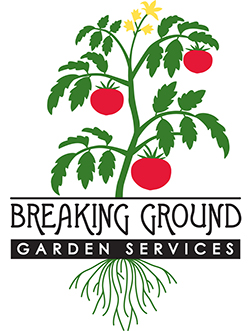Originally published in SFGate, by Joe Eaton and Ron Sullivan
July 11, 2013
Walk into Pollinate Farm & Garden, a new business in Oakland’s Fruitvale district, and all kinds of agrarian goodies catch your eye: heirloom vegetable seeds, home canning equipment, beekeeper gear, organic fertilizer, livestock feed, magazines and books. But it’s hard to get past the chicks.
They pullulate in metal feed troughs, hunker under warming lights or pile up in chick heaps. All are fluffy, but few are classic-Peep yellow; most are striped or mottled, others jet black. There’s not a Rhode Island Red in the bunch: These are what co-owner and chicken maven Yolanda Burrell calls heritage breeds.
There are Double Blue True Araucanas and Easter Eggers, which both lay blue eggs, Spangled Russian Orloffs, Blue Bredas, Marraduna Basques and Lavender Orpingtons. Burrell showed us a Serama, a bantam breed from Malaysia “about the size of a salt shaker,” and a Brassy-back Black Rosecomb considerably smaller than its name. She gets them from specialty breeders who ship them in the egg; they’re hatched out locally. “They’re all straight runs,” she cautioned – meaning the batches may contain future roosters. “Roosters can be rehomed, though.” Chick sexing is tricky with purebreds, but “at about four months they’ll either lay eggs or crow.”
While Burrell covers the chickens and bees, her business partner Birgitt Evans deals with seeds and seedlings. Pollinate stocks a choice seed selection (Territorial, Oakland’s own Kitazawa, Johnny’s of Winslow, Maine) and a few starts (‘Padron’ and ‘Corno di Toro’ peppers, cold-tolerant ‘Orient Express’ eggplants). Evans, who has taught seed-saving classes through the University of California Cooperative Extension’s Master Gardener program, pushes the seeds: “I want to encourage people to grow from seed. I don’t have bean starts here – you can do them yourself. It struck me that people are terrified of seeds – terrified of failure. You’re going to fail. I fail regularly. You just pick it up and start over again.”
For both women, Pollinate is a dream business. Burrell grew up outside Santa Rosa, in a family that raised vegetables, chickens, goats and cows. She’s been working in IT, including a stint as the Oakland Police Department’s webmaster. As a child, Evans had a redwood vegetable bed that her father built. She majored in wildlife biology but wound up in tax accounting. The two met through Evans’ husband, Chuck Millar, and found a common passion in urban farming. They realized there was a niche for a one-stop city farm and garden store.
Pollinate opened in March and is drawing customers from the neighborhood and as far away as Stockton and Petaluma. It’s a family effort – no paid staff. Burrell’s husband, Terry Parker, was helping out when we visited. Millar built the Mix & Match Fertilizer Bar, where you can personally blend your seabird guano and oyster shell.
exp-player-logo
The store stocks Calf Manna (good for goats and rabbits, too), less-toxic pest control products, hummingbird feeders. “We’d like to sell local honey,” said Burrell. “With California’s new cottage industry law, we’ll be able to branch out into other products like locally made Meyer lemon marmalade or baked goods.” Classes and workshops are already under way; on July 10 Chronicle Golden Gate Gardener columnist Pam Pierce was scheduled.
Evans and Burrell aren’t wild-eyed survivalists, but they’re serious about food security and self-sufficiency. “I’ve been canning since I was 12 or 13,” Evans said. “Since the Crash of 2008, people have been wanting me to teach them how to can. The knowledge we’ve lost is staggering. As the complex keeps crumbling down, losing topsoil, poisoning the earth, how are we going to eat?”
Joe Eaton and Ron Sullivan are Berkeley freelancers and naturalists. E-mail: home@sfchronicle.com.
